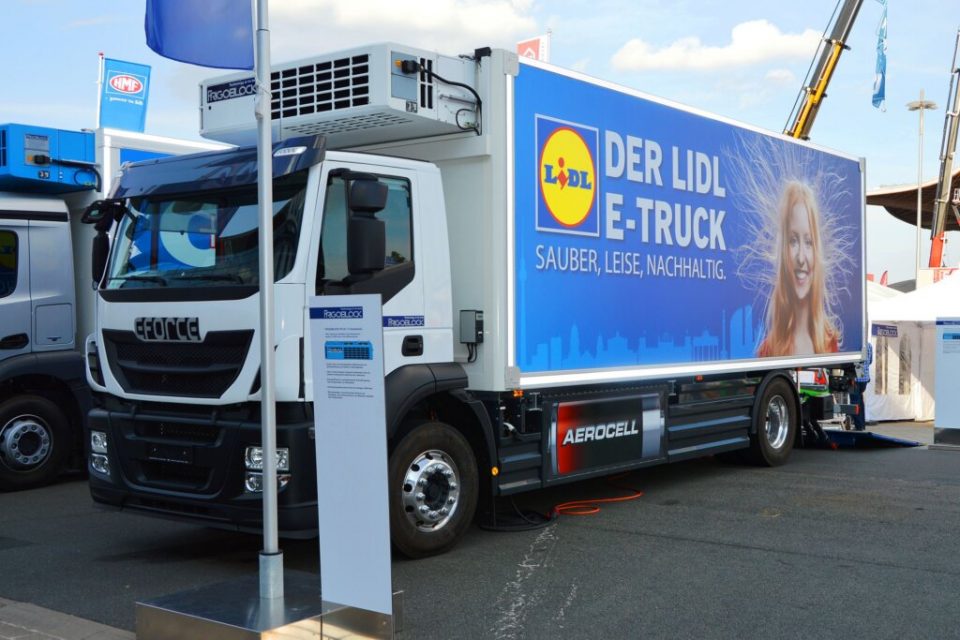Lidl, one of Europe’s leading discount supermarket chains, has announced a significant expansion of its electric delivery fleet across multiple European markets. The initiative, revealed this week, is part of Lidl’s broader strategy to reduce its carbon footprint, enhance sustainability, and meet growing consumer expectations for environmentally responsible retail operations. The move also underscores the chain’s commitment to innovation and modernisation within the competitive grocery sector.
The Push Towards Sustainability in Retail
Supermarkets are increasingly under pressure to address their environmental impact, from store operations to supply chain logistics. Transportation represents a significant source of greenhouse gas emissions in grocery retail, particularly in the delivery of online orders and stock between distribution centres and stores. By transitioning to electric vehicles (EVs), Lidl aims to:
-
Reduce emissions from last-mile delivery
-
Lower operational energy costs
-
Align with European environmental regulations
-
Strengthen its sustainability credentials among consumers
This initiative aligns with Lidl’s corporate responsibility goals and broader European Union targets for green logistics.
Electric Delivery Fleet Expansion
Lidl plans to deploy hundreds of electric vans and trucks across key markets, including Germany, France, Spain, and the United Kingdom. The fleet expansion is designed to serve both home deliveries and the distribution of stock between regional warehouses and local stores. Key aspects of the initiative include:
-
Vehicle Technology – Latest-generation EVs with extended range and fast-charging capabilities.
-
Route Optimisation – AI-powered route planning to maximise efficiency and reduce energy consumption.
-
Driver Training – Ensuring that drivers operate vehicles safely and efficiently to maximise battery life.
-
Integration with Store Operations – Coordinated delivery schedules to maintain stock availability while minimising environmental impact.
The combination of advanced vehicle technology and operational strategy ensures the fleet can meet Lidl’s logistical demands while achieving sustainability objectives.
Consumer and Market Benefits
Consumers increasingly value environmentally conscious retail practices, and Lidl’s initiative offers tangible benefits:
-
Eco-Friendly Delivery Options – Customers can feel confident that their groceries are transported sustainably.
-
Reliable Service – EVs are integrated with route optimisation systems to ensure timely deliveries.
-
Reduced Noise and Air Pollution – Especially beneficial in urban environments.
-
Corporate Responsibility Messaging – Reinforces Lidl’s commitment to sustainability, strengthening brand loyalty.
These benefits demonstrate that environmental initiatives can also improve consumer perception and satisfaction.
Operational Efficiency and Technology
The expansion of Lidl’s electric fleet is supported by technology-driven solutions:
-
Real-Time Monitoring – Tracking vehicle performance, battery life, and delivery status.
-
Predictive Maintenance – AI algorithms detect maintenance needs before breakdowns occur.
-
Energy Management – Optimising charging schedules to use renewable energy sources where possible.
-
Data Analytics – Insights into delivery patterns help refine logistics and enhance operational efficiency.
By integrating technology into fleet management, Lidl ensures that sustainability objectives are achieved without compromising service reliability.
Competitive Landscape
Europe’s grocery sector is increasingly competitive, with chains such as Aldi, Carrefour, Tesco, and REWE investing in sustainable logistics and digital innovation. Lidl’s electric delivery initiative positions the retailer as a leader in environmentally conscious operations, differentiating it from competitors.
The expansion also aligns with trends in urban logistics, where delivery congestion and emissions are critical challenges. By adopting EVs, Lidl demonstrates leadership in modern, sustainable retail practices while meeting regulatory expectations and consumer demand.
Challenges and Considerations
Implementing an electric delivery fleet presents operational and logistical challenges:
-
Charging Infrastructure – Ensuring sufficient fast-charging stations across regions.
-
Vehicle Range – Adapting to varying delivery distances and geographic terrain.
-
Investment Costs – Upfront capital for vehicles, charging stations, and training.
-
Integration with Existing Systems – Aligning EV deliveries with traditional fleet operations and supply chains.
Lidl has invested in infrastructure, technology, and training to mitigate these challenges and ensure the smooth operation of its EV fleet.
Environmental and Social Impact
The electric fleet expansion contributes to both environmental and social objectives:
-
Reduced Carbon Emissions – A measurable reduction in Lidl’s operational environmental footprint.
-
Improved Urban Air Quality – Supporting healthier city environments.
-
Sustainable Brand Image – Demonstrates responsibility to consumers, investors, and regulators.
-
Employee Engagement – Drivers and staff benefit from training and involvement in green initiatives.
This dual impact highlights the potential for environmental initiatives to reinforce both sustainability and business performance.
Future Prospects
Lidl plans to continue expanding its electric fleet and explore additional green logistics solutions, including:
-
Renewable energy-powered warehouses
-
Cargo e-bikes and micro-delivery vehicles for city centres
-
AI-driven predictive logistics for further efficiency
-
Collaboration with suppliers to reduce emissions across the supply chain
These measures demonstrate Lidl’s commitment to a long-term sustainable retail model.
Conclusion
Lidl’s expansion of its electric delivery fleet underscores the chain’s commitment to sustainability, operational efficiency, and customer-centric innovation. By integrating EVs with advanced technology, route optimisation, and renewable energy, Lidl reduces its environmental footprint while maintaining reliable service. In a competitive European grocery market, this initiative positions the retailer as a leader in green logistics, setting a benchmark for sustainable retail operations. As consumers increasingly value environmental responsibility, Lidl’s approach offers a practical example of how supermarkets can combine innovation, efficiency, and sustainability to meet modern expectations.


